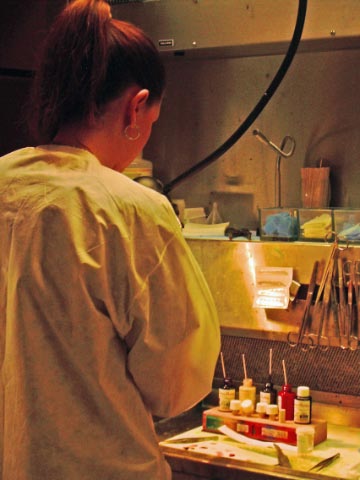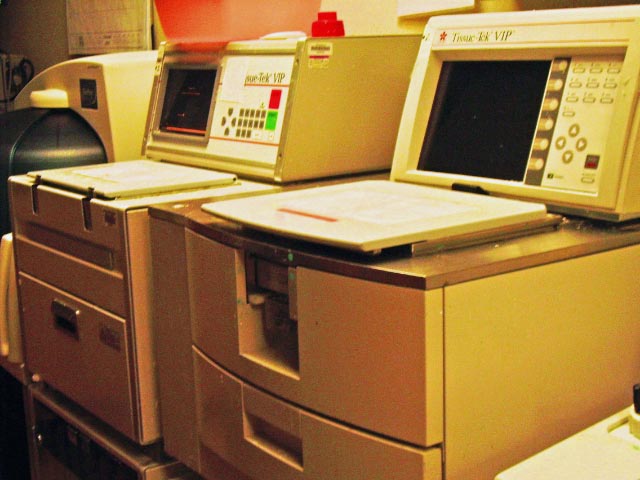Our Role in Your Health
Pathology is one of those vital, behind-the-scenes fields of medicine that we seldom think about when we're healthy. When our health is impaired, however, our recovery and peace of mind often depend on the expertise and accuracy of experienced pathologists.
 |
As medical directors of the lab, the pathologists' clinical work includes oversight of the blood bank, chemistry, microbiology. serology and hematology, including the examination of hone marrows and blood smears. Diagnostic Pathology's anatomic work includes the review of biopsy, surgical, and cytological specimens and conducting autopsies. Dr. Proctor performs the majority of autopsies for Horry, Georgetown, and Dillon counties. |
The doctors use state-of-the-art equipment and often consult with one another on difficult cases. As a group, they may examine as many as 150 specimens a day. The practice also maintains relationships with resource laboratories for additional testing. Special stains are used for the interpretation of lymphomas, melanomas, and leukemias, and receptor studies are offered for breast cancers. "Stains attach to hormonal receptors within the tissue, and by studying what attaches where, we can detect cancer origins" explains Dr. Proctor. The origin determines the best method of treatment for the patient.
|
With much of the coastal population's life long exposure to the sun, Dr. Walls is seeing a growing number of skin cancer specimens. Most skin cancers occur on sun-exposed areas, including lower legs, where people have a tendency to ignore growths. It's not surprising anymore to see malignant skin lesions in younger patients and occasionally in teenagers" he says. |
 |
